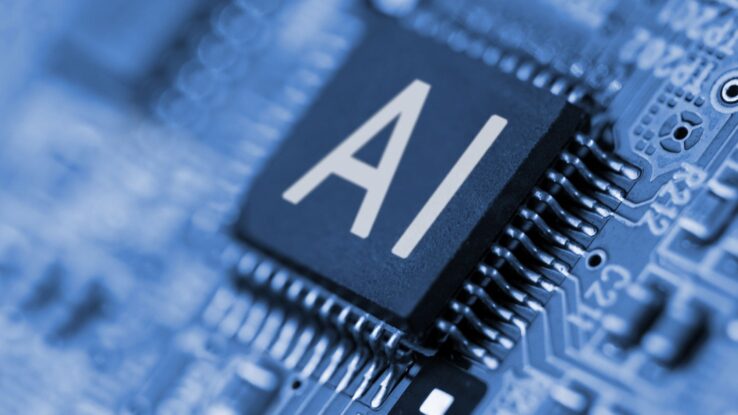Articles & Insights on Data Science, Analytics, AI & ML – Edvancer

Advanced Certification in AI and Machine Learningartificial intelligenceartificial intelligence course eligibilityartificial intelligence course syllabusartificial intelligence online coursemachine learning
The study of creating intelligent computers that can carry out complicated tasks that often require human intervention and intelligence is known as artificial intelligence, or AI. The study of AI is a branch of computer science.
To use machines and computers to mimic the capabilities of the human mind’s decision-making and problem-solving processes, data science is combined with actual data from the real world.
A technological research company called Gartner predicts that this year’s growth in the artificial intelligence market will be a little over 21%.
Due to this growth, there is a significant need for AI engineers to help with the maintenance, creation, and development of new AI systems. The courses listed below are my top recommendations for online AI programs that you may enrol in right away to get your foot in the door.





Follow us on




The Artificial Intelligence Course Syllabus
The author of Artificial Intelligence: A Modern Approach, one of the most often required texts in college AI classes, discusses the numerous specialized areas of intelligence that, when integrated, could result in an AGI system. Since most AI courses assume a basic understanding of statistics, probability, linear algebra, calculus, and programming, it will be challenging for you to understand many AI topics without this exposure to mathematics. Although a graduate-level understanding is not necessary, it is essential to be conversant with these ideas because AI is a complicated field of computer science and mathematics. The seven must-have topics for Your artificial intelligence course syllabus and the key ideas about them are listed below:1. Programming Language Expertise
Learning programming languages like Python, Java, and C++ is crucial for mastering artificial intelligence. You may easily develop sophisticated algorithms by utilizing a computer language like Python. Python is the most crucial language that you should think about learning. It’s easy to understand why. Python is a great language for beginning programmers because of its clear, succinct syntax, which is akin to writing commands in English. Additionally, Python offers several libraries designed expressly for AI and machine learning. For instance, Scikit-learn, TensorFlow, etc.2. Discover the Basics of Machine Learning
According to Wikipedia, machine learning is a subset of artificial intelligence and is essentially the study of computer systems that get better on their own over time. Without being explicitly programmed, the machine learning algorithm builds a mathematical model using training data that is based on sample data. Applications for email filtering, computer vision, space exploration, robotics, information extraction, etc. also use machine learning methods.3. Good Mathematical Skills
Since designing programs and algorithms for artificial intelligence requires a better conceptual understanding of mathematics, students will need to develop this understanding. Basic math’s concepts including linear algebra, calculus, probability, and statistics must be understood by the students.4. Data Structure and Algorithmic Knowledge
Simply said, the data structure is a useful method of gathering and arranging facts to conduct actions on them. Consider the following scenario: We have data with the employee “Rajan” and data with the age of 34. – Rajan is a String Data type in this case. – An integer data type is 34. We can quickly arrange this information into an employment record and include the name and age of the person in it.5. Pre-Processing of Data
Now that you can edit data, it’s essential to study various methods that will enable you to turn unstructured data into structured data so that you can use Machine Learning algorithms to extract insights from it. One of these techniques is principal component analysis. ➔ Reduction of dimensions. ➔ Normalization. ➔ Cleaning up the data, dealing with missing values, etc. ➔ impartial estimators. ➔ Extraction of features. ➔ sampling and denoising You can organise your data using these methods to conduct additional analysis.6. Machine Learning
Without being particularly programmed for a task, machines can “learn” it through experience thanks to machine learning. In essence, machines pick up knowledge autonomously without human guidance. They are first fed high-quality data, after which the machines are trained by creating various models and employing various techniques. The kind of task we are aiming to automate will determine the algorithms we use. However, the three broad categories of machine learning algorithms: – Reinforcement Learning – Unsupervised Learning – Supervised Learning7. Internet of Things
Artificial intelligence is the study and development of computers that can mimic human tasks utilising past knowledge and without operator assistance. On the other hand, the Internet of Things is a network of diverse gadgets that are connected via the internet and can collect and exchange data. Now, a large amount of data is produced by all these loT devices and must be gathered and mined to produce useful information. Artificial intelligence can be used in this situation.Govt. Recognized Artificial Intelligence Online Course
With all the technical jargon you encounter, artificial intelligence is undoubtedly a broad and perplexing field. However, starting with a self-paced professional certification in artificial intelligence should clear your route in this profession. Advanced Certification in AI and Machine Learning course at Edvancer has been designed and provided by experts from IIT Kanpur. The course includes 500 hours of training and coaching supported by real-life case studies. FAQ Section :- What are the main areas of specialisation in artificial intelligence?
- What Skills do I need to learn Artificial Intelligence?
- Are there good job prospects for an Artificial Intelligence Course?
Follow us on
Free Data Science & AI Starter Course

